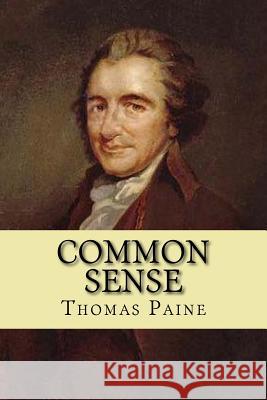Common sense » książka
Common sense
ISBN-13: 9781539965251 / Angielski / Miękka / 2016 / 96 str.
Common sense
ISBN-13: 9781539965251 / Angielski / Miękka / 2016 / 96 str.
(netto: 47,73 VAT: 5%)
Najniższa cena z 30 dni: 46,54 zł
ok. 13-18 dni roboczych.
Darmowa dostawa!
The common Sens is a pamphlet by Thomas Paine published for the first time without the author's name January 10, 1776, during the American Revolution. Paine has benefited during its drafting, comments Benjamin Rush who gave him the title. The denunciation of the British administration in Common Sense has enjoyed immense popularity that helped foment the American Revolution. For the historian Howard Zinn, "it was the first vigorous defense of the idea of independence in terms that could be understood by any person who can read." The second edition was quickly followed by a third edition, with a report on the value of the British Navy, an increased schedule, and a response to criticism by the Quakers, published February 14, 1776. Unlike an elitist literature addressed mainly to the gentlemen, Thomas Paine wrote The Common Sense in a simple and accessible to as many style, devoid of Latin quotations and references savantes. This text "went on to sell nearly 150,000 copies in the space of a few months," says the historian Jean-Michel Lacroix, who advance it embodies "the appearance of an early national sentiment" . Thomas Paine, born January 29, 1737 Thetford in Britain and died June 8, 1809 in New York, USA, is an intellectual, pamphleteer, revolutionary British, American and French. He is known for his commitment during the American Revolution for Independence of the thirteen British colonies in North America. He outlined his position in a famous pamphlet Common Sense, published a few months before the signing of the American Declaration of Independence in 1776. His writings, which include Rights of Man (1791), also had a great influence on the players of the French Revolution he was elected to the National Assembly in 1792. Considered by the Montagnards as an ally of the Girondins, he gradually sidelined, including Robespierre and imprisoned in December 1793. After the Terror, he was released and had some success with his book The Age of Reason (The Age of Reason, 1793-1794) that analyzes Christianity and advocates of Deism. In Agrarian Justice (1795) 1, analyzes the origins of property rights and introduced the concept of basic income, close to the minimum wage. Thomas Paine remained in France until 1802, during which he criticized the rise of Napoleon Bonaparte, calling the First Consul of "most perfect charlatan that ever existed." 2 At the invitation of President Thomas Jefferson, he returned to the United States where he died in 1809 at age 72.











